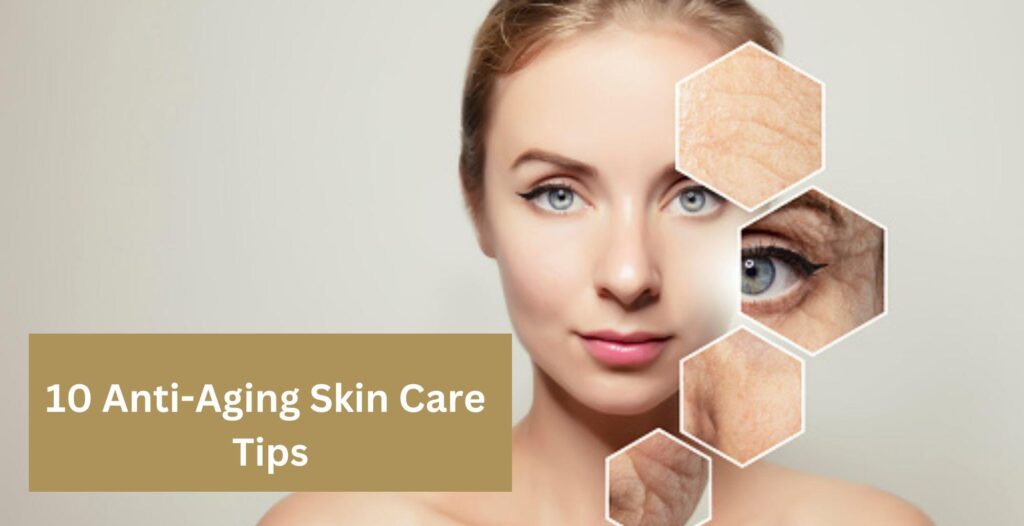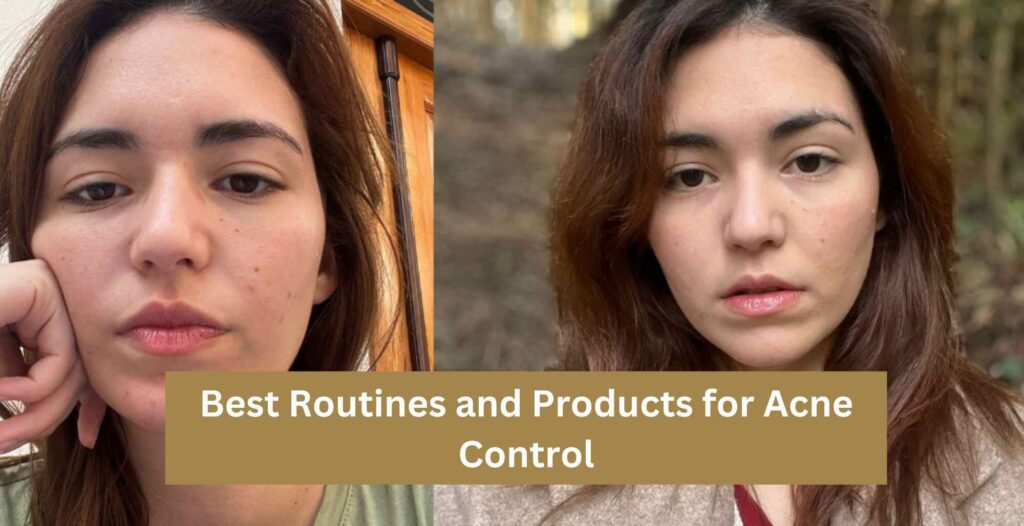How to Get Rid of Oily Skin Forever. Oily skin may be a bothersome problem because it causes enlarged pores, glossy skin, and frequent breakouts. This article will offer practical answers supported by professional guidance and natural therapies if you’re searching for long-term solutions to manage oily skin.
Table of Contents:
Why Is My Skin So Oily? – 4 Surprising Reasons Behind Your Greasy Skin!
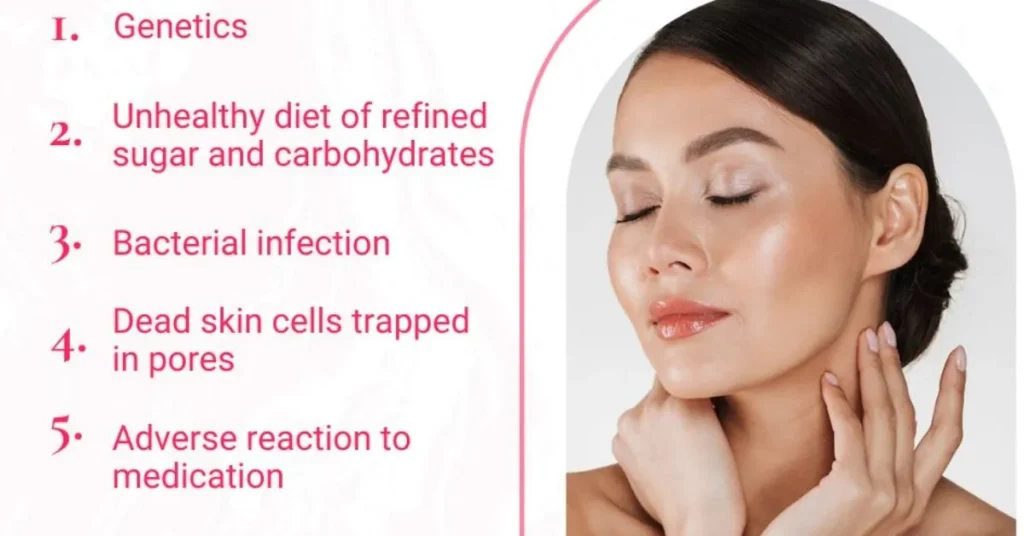
- Genetics: Your chances of having oily skin increase if it runs in your family.
- Hormonal Changes: Menopause, pregnancy, and puberty can all cause an increase in sebum production.
- Diet: Excessive dairy consumption or high-glycemic diets might exacerbate oiliness.
- Skincare Mistakes: Excess oil production might be caused by harsh products or excessive washing.
How to Get Rid of Oily Skin Permanently – Step By Step Guide!
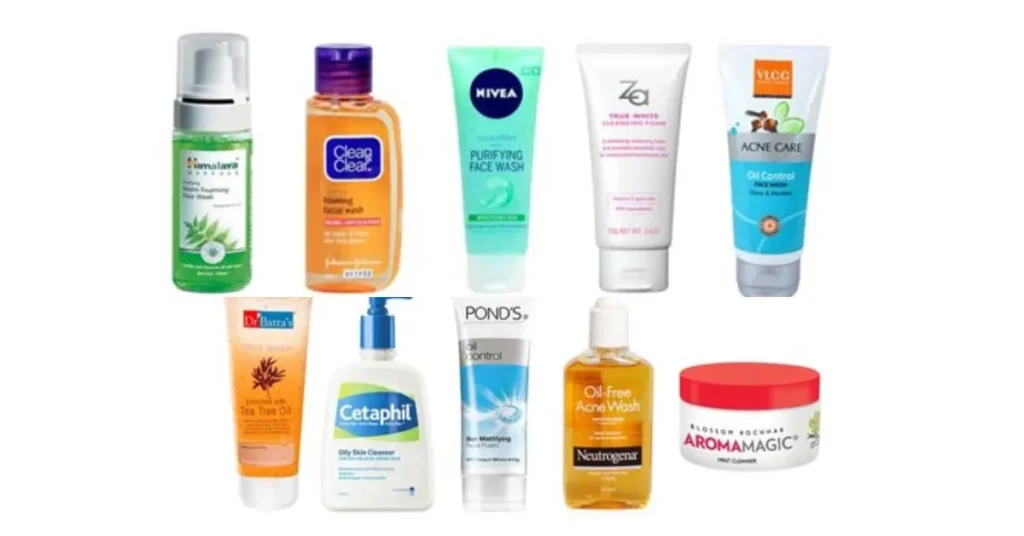
1. Use the Right Cleanser:
Use a mild cleanser to get rid of extra oil without stripping your skin. Seek out components such as:
- Salicylic Acid: penetrates pores and eliminates accumulated oil.
- Benzoyl Peroxide: lowers oil and combats germs that cause acne.
- Tea Tree Oil: A natural substitute that has antimicrobial qualities.
- Tip: To keep your equilibrium, wash your face twice a day, in the morning and the evening.
2. Incorporate Oil-Free Moisturizers:
Skipping moisturiser can make oily skin worse as your skin overcompensates by producing more oil. Choose lightweight, non-comedogenic options with ingredients like:
- Hyaluronic Acid: hydrates without making you greasy.
- Niacinamide: Reduces irritation and regulates the production of sebum.
3. Exfoliate Regularly:
Exfoliation aids in pore unclogging and oil removal. Make use of mild exfoliants like:
- AHAs (Alpha Hydroxy Acids):for exfoliating the surface.
- BHAs (Beta Hydroxy Acids): To penetrate deeper into oily pores.
- Frequency: 1-2 times a week to avoid irritation.
4. Use Clay Masks:
Clay masks, such as kaolin or bentonite, cleanse the skin and absorb extra oil. For optimal effects, use a mask once every seven days.
5. Apply Retinoids:
Retinoids enhance skin texture and control oil production. Prescription-strength tretinoin and over-the-counter alternatives like retinol can be quite beneficial.
6. Maintain a Balanced Diet:
Steer clear of high-glycemic items, such as sugary snacks and white bread. Eat more omega-3 fatty acids, which are present in walnuts, flaxseeds, and seafood.To keep your skin healthy, stay hydrated.
7. Avoid Overwashing:
Excessive face washing can remove natural oils, which makes your skin produce more. Make sure to clean twice a day.
Natural Solutions for Sebum Production:
These treatments may be helpful if you prefer natural remedies:
- Without clogging pores, aloe vera gel soothes and moisturizes.
- Before using, dilute apple cider vinegar with water to balance the pH of the skin.
- Green tea extract: Reduces irritation and sebum production.
- Honey: Has antimicrobial and humectant properties of its own.
What to Avoid for Oily Skin – Must Read It!
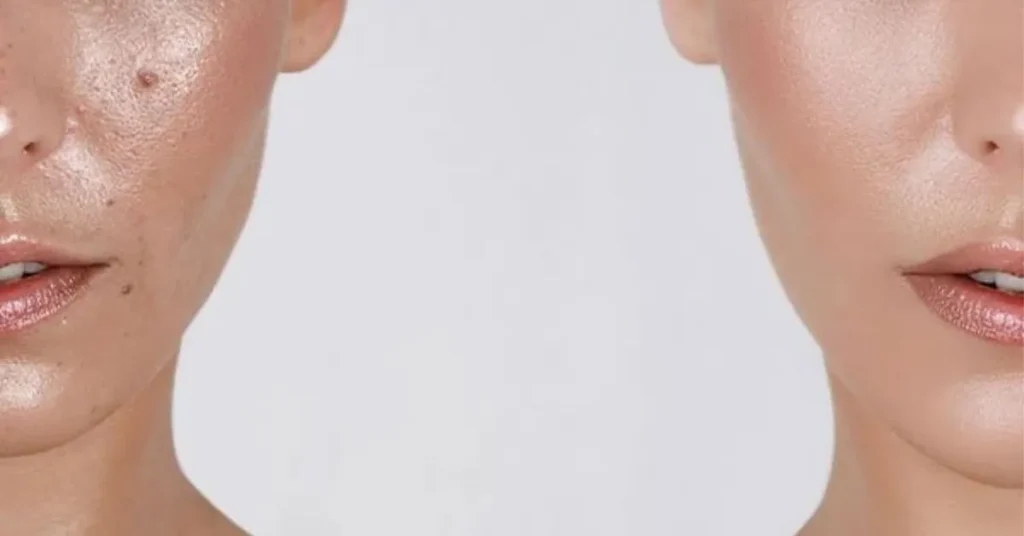
- Heavy Makeup: Apply a lot of makeup using non-comedogenic, oil-free makeup.
- Alcohol-Based Toners: Toners with an alcohol base have the potential to strip your skin and make it more oily.
- Hot Water: Wash your face with lukewarm water.
When to See a Dermatologist for Oily Skin
It’s a good idea to consult a dermatologist if over-the-counter medications and home cures are unable to control your oily skin. Severe cases of oily skin can result in infections, clogged pores, and acne, among other problems that call for medical attention.
Deep exfoliation of the skin is how professional treatments like chemical peels decrease grease and unclog pores. Targeting hyperactive sebaceous glands with laser therapy can reduce oil production and enhance the appearance of the skin overall. Oral drugs like isotretinoin could be suggested in more serious situations.
Women with hormone-related oily skin may also benefit from hormonal medication, such as oral contraceptives. To assist control oil and enhance skin texture, a dermatologist may also recommend topical medications like retinoids. Consulting a dermatologist guarantees that you receive the most efficient and long-lasting therapy possible, customized to your needs if your oily skin is persistent, uncomfortable, or results in scars.
Lifestyle Changes to Combat Oily Skin – Get Ready to Glow!
1. Importance of Regular Exercise:
In addition to lowering stress, exercise increases blood flow, which is good for your skin. Your skin will glow with a renewed brilliance after sweating out those toxins, even though it will initially appear a little shiny.
2. Adequate Hydration and Sleep:
Stay hydrated by drinking lots of water, and try to get enough sleep so that your skin can heal and rejuvenate. Because your skin will be so hydrated from the inside out, it won’t feel the need to make more oil to make up for it.
FAQS:
1. Can oily skin be permanently cured?
Even while you can’t alter your skin type, you can maintain balance and drastically cut down on oiliness with regular care and focused treatments.
2. Does diet affect oily skin?
Indeed, a diet heavy in processed foods and sweets can raise the production of oil, but a well-balanced diet rich in omega-3 fatty acids and antioxidants may aid.
3. What products should I use for oily skin?
Choose non-comedogenic, oil-free cleansers, witch hazel toners, light moisturizers, and mattifying sunscreens.
4. Are home remedies effective for oily skin?
Aloe vera and clay masks are two methods that can help control oil. However, expert treatments can be necessary for persistently oily skin.
Conclusion:
How to get rid of oily skin permanently? Consistent care and the appropriate strategy are necessary to permanently eliminate oily skin. You can attain a healthy, oil-free complexion by using the right products, eating a balanced diet, and adhering to a customised skincare regimen.

